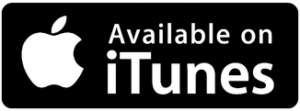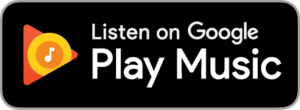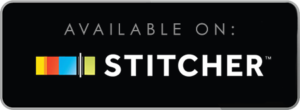Are you someone who is looking to transition into law? In this engaging podcast episode, Jim and Tyson sit down with Bill Gshwind of Minnesota Construction Law, who shares his unique journey into law after a 25-year tenure in business.
In this episode, Jim & Tyson interview Todd Smith, an appellate lawyer from Austin, Texas who runs his own law firm; Smith Nobles Appeals and is the president-elect of the Austin Bar Association. Listen as they go over Todd’s business and discuss about his mindset running his firm and helping lawyers with appeals, marketing strategies and systems, paying special attention to the importance of building personal relationships and networking.
[smart_track_player url="http://traffic.libsyn.com/maximumlawyer/Episode_127.mp3" social_linkedin="true" ]
Register to MaxLawCon19, June 6 and 7 in St.Louis.
Topics:
- Todd’s Journey to managing partner of a small law firm
- Judicial clerkship with the Texas Supreme Court > Interest in Civil Appellate work
- Big Law
- Wanted to be a Texas Lawyer
- Went Solo and hanged his own shingle
- Formed a Law Corporation and took in Partners
- Lawyers can’t handle their own appeals?
- Mindset
- Persuade a trial lawyer to hire an appeal lawyer
“Look, you are really good in what you do, you are a successful trial lawyer, you get good results for your clients, and if you don’t get a good result you are smart enough to handle an appeal. But what you really ought to be able to do is focus on what you do best, and this is what we do… (...) We want to help you strategize... ”
-
- Marketing towards Attorneys or Clients
- Best work comes from referrals
- Lead magnets
- Re-design of website
- 2019’s first quarter goals
- Intake process
- Calls > System > Information > Engagement
- Building Systems
- Forethought and planning
- Technician or entrepreneur
- Executing
- Time management
- Michael Hyatt fan
- Problem: execution of the plan
- Logistics: Having an office in Austin and an office in Houston
- Advice bringing your spouse into your firm
- Set up boundaries
- Don’t let the office stuff spill into every aspect of your personal life
- Marketing towards Attorneys or Clients
- Networking
-
- Social media relationships
- What really made a difference for Todd was real facetime and establishing personal relationships
Register for the MaxLawCon19!
Thanks so much for listening to the show! If you want to know more about this and keep on maximizing your firm, please join our Facebook Group or like us on Facebook and comment!
You can also go to MaximumLawyer.com or, if you’d prefer, email us at: [email protected]
Jim’s hack: James Clear, sends out an email at the end of every year with a link to all of the book summaries that he’s read that year. Interesting, useful and shareable content.
Todd’s tip: A time management app based on the Pomodoro technique. Focus Keeper.
Tyson’s tip: A technology test website for when you are hiring employees. Employ Test.
//
Do you want to get on the show? Shoot us an email or message us!
The Maximum Lawyer Podcast. Partner up, and maximize your firm.
Guild Membership
Free Access to Stage 1 of Maximum Lawyer in Minimum Time
Sign Up Today!Customer Reviews
4.9 out of 5
Join Our Facebook Group
Enjoy Exclusive Access To Stage One Of The Maximum Lawyer In Minimum Time Course
Privacy Policy
This privacy policy has been compiled to better serve those who are concerned with how their ‘Personally Identifiable Information’ (PII) is being used online. PII, as described in US privacy law and information security, is information that can be used on its own or with other information to identify, contact, or locate a single person, or to identify an individual in context.
Please read our privacy policy carefully to get a clear understanding of how we collect, use, protect or otherwise handle your Personally Identifiable Information in accordance with our website.
What personal information do we collect from the people that visit our blog, website or app?
When ordering or registering on our site, as appropriate, you may be asked to enter your name, email address or other details to help you with your experience.
When do we collect information?
We collect information from you when you register on our site, place an order, subscribe to a newsletter, Use Live Chat, Open a Support Ticket or enter information on our site.
How do we use your information?
We may use the information we collect from you when you register, make a purchase, sign up for our newsletter, respond to a survey or marketing communication, surf the website, or use certain other site features in the following ways:
- To personalize your experience and to allow us to deliver the type of content and product offerings in which you are most interested.
- To improve our website in order to better serve you.
- To allow us to better service you in responding to your customer service requests.
- To quickly process your transactions.
- To send periodic emails regarding your order or other products and services.
- To follow up with them after correspondence (live chat, email or phone inquiries)







